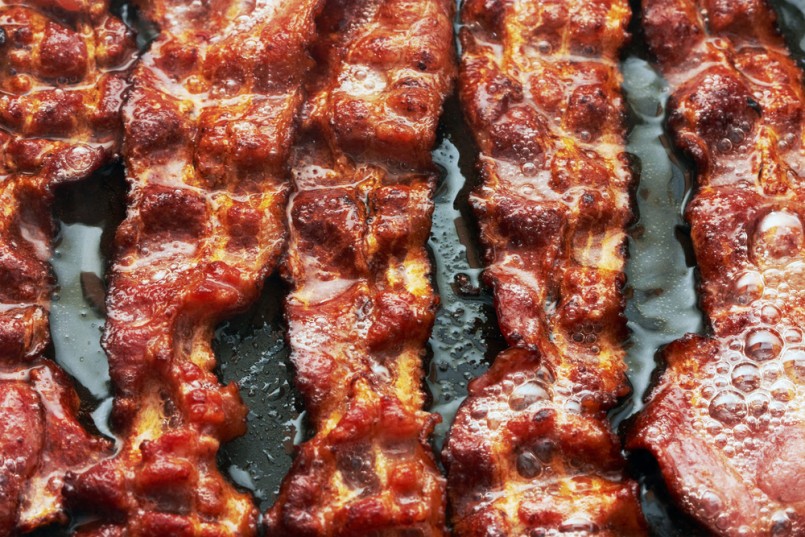
It was the shot heard around the world. In October 2015, the International Agency for Research on Cancer (a subsidiary of the World Health Organisation) delivered the news no one wanted to hear:
Bacon officially causes cancer.
Inevitably, the Internet went into meltdown. Media outlets clambered over each other to post sensationalist articles equating our favourite smokey protein with such diabolical evils as tobacco and asbestos, and hardline vegans began wringing their hands with glee at the impending destruction of the meat industry.
But when you look past the hype, is the news about bacon and cancer really that bad? Well, let’s find out:
What Did the IARC Actually Say?
A group of 22 scientists were tasked with reviewing the evidence linking meat consumption to cancer, and they concluded that eating red meat and processed meats on a regular basis does in fact increase the risk of colorectal cancer. Based on the evidence from the review, they decided to classify processed meats like bacon, hot dogs and salami as Group 1 carcinogens (that is, they definitely cause cancer), which immediately puts them in the same category as tobacco.
The IARC team also found that red meats like beef, pork and lamb are Group 2 carcinogens (that is, they probably cause cancer), which lumps them together with such notorious environmental menaces as sunshine, aloe vera and the mildly-polluted air you’re probably breathing right now.
But What Does It All Mean?
There’s no getting away from it—processed meats are definitely carcinogenic. But what you need to realise is that the IARC are in the business of classification, not risk assessment. Yes, bacon has properties that mean it can potentially cause cancer, but your risk from smoking tobacco is orders of magnitude higher. Just because these two substances are in the same category, doesn’t mean they are equally dangerous. It’s like saying that badminton is just as harmful as boxing, because you can get injured doing both.
The reality is that the risk of colorectal cancer is actually pretty low to begin with, and eating 2 streaky rashers or one small hot dog a day only increases it by about 18 percent, according to the IARC themselves. For red meat, the risk is probably even less given their lower classification. That’s not to say you shouldn’t care, I’m just saying don’t panic.
Verdict
While it’s important to accept the IARC’s conclusions and acknowledge the risks associated with eating bacon and other meats, the likelihood of you getting cancer from them is low enough not to be too concerned. I wouldn’t necessarily recommend living off nothing but salami, hot dogs and the occasional steak for the rest of your life—that’s just silly.
But as is always the case, moderation and balance are key. Enjoy the processed stuff, but try to favour more nutritious foods like vegetables, fruits and whole cuts of organic and free-range meats. And don’t believe the hype or get worked up over a couple of sensationalist headlines. We’re men dammit—no one is going to take our bacon away!
Q: Will the link between bacon and cancer stop you from eating it? Let us know in the comments below!
 David Carroll is a freelance writer, self-published author, and chief health-nut at thepaleotoolkit.com. Outside of work, he loves hurling (an amazing Irish sport), playing video games and hanging out with his dogs. Follow him on Twitter (@DavidAshCarroll) and Google+.
David Carroll is a freelance writer, self-published author, and chief health-nut at thepaleotoolkit.com. Outside of work, he loves hurling (an amazing Irish sport), playing video games and hanging out with his dogs. Follow him on Twitter (@DavidAshCarroll) and Google+.


